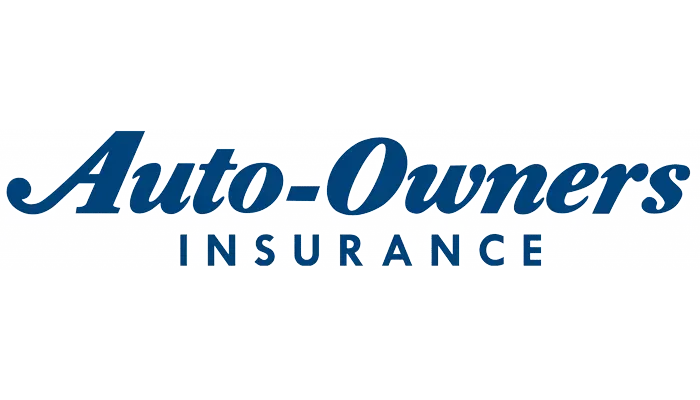Trusted by leading facility management companies for effective Coi management solutions





Common facility management COI compliance challenges

Contractor Insurance Gaps & Service Delays
Facility managers face operational disruptions when contractors arrive without current certificates, forcing service delays and emergency rescheduling. Missing or expired insurance creates liability exposure during critical maintenance activities like HVAC repairs, elevator service, and security system maintenance. One uninsured incident can halt building operations and create costly tenant complaints.

Work Order & COI Compliance
Facility managers struggle to coordinate work orders with contractor insurance verification, leading to scheduling conflicts and service delays. Manual tracking systems cannot ensure contractors maintain current coverage throughout ongoing service agreements. Compliance gaps go unnoticed until emergencies require immediate contractor access without proper insurance verification.

Chasing Contractor COI's
Facility management teams spend countless hours requesting certificates from HVAC contractors, cleaning services, security providers, and maintenance vendors. Contractors delay submissions, provide expired documents, or submit inadequate coverage that doesn't meet facility requirements. Manual follow-ups prevent focus on operational priorities and building management activities.
SimpleCerts eliminates facility management COI challenges with automated contractor verification designed specifically for building operations and service provider management.

How SimpleCerts makes COI tracking & verification easy for facility managers

Service Provider Performance & Compliance Tracking
Monitor service provider performance alongside insurance compliance through integrated tracking systems. Automated renewal management prevents coverage lapses for critical building services while vendor performance analytics identify reliable contractors with consistent compliance records. Emergency contractor databases maintain pre-verified backup providers for urgent facility needs.

Work Order Integration & COI Verification Alignment
Connect contractor insurance verification with work order management systems to prevent scheduling conflicts and service delays. Automated workflows ensure only properly insured contractors receive work assignments while compliance monitoring tracks certificate status for ongoing maintenance agreements. Integration with facility management platforms maintains operational continuity while ensuring comprehensive insurance compliance.

Automated Contractor Insurance Verification
Ensure all service providers maintain current insurance coverage before accessing facilities. Automated verification prevents contractors from beginning work without proper certificates while real-time monitoring tracks coverage status throughout service agreements. Custom requirement templates match specific contractor types including HVAC, electrical, plumbing, cleaning, and security services with appropriate coverage limits
Ready to streamline your contractor COI tracking and reduce service delays?
What our COI Tracker Includes
Complete certificate of insurance management that combines cutting-edge AI technology with expert human verification. SimpleCerts delivers affordable, fully managed COI tracking that eliminates compliance headaches for property managers, contractors, and risk professionals.

Fully managed COI Software Solution
Automated certificate collection, compliance tracking, and renewal management. Upload your requirements once and let our platform handle vendor onboarding, document verification, and ongoing monitoring. Real-time dashboards keep you informed without the manual work.

Most Affordable COI Solution
Enterprise-grade certificate of insurance software at small business prices. No hidden fees, setup costs, or per-user charges. Get unlimited policyholder certificates, automated compliance alerts, and dedicated support starting at industry-leading rates.

Human COI Verification Included
When compliance issues arise or certificates need follow-up, our certified risk management professionals step in to handle vendor communication and resolution. You get AI-powered efficiency with human expertise managing the complex situations that require personal attention.
Facility Management and Certificate of Insurance Compliance for Service Providers
Facility managers oversee complex building operations that depend on numerous service providers, contractors, and vendors who must maintain appropriate insurance coverage to access facilities and perform critical maintenance activities. From HVAC contractors and elevator technicians to cleaning services and security providers, facility managers must ensure every service provider carries adequate insurance while maintaining operational efficiency and building safety standards.
Emergency contractors present unique challenges for facility managers who need immediate access to qualified, properly insured service providers during system failures or urgent repairs. Maintaining pre-verified contractor databases with current insurance documentation ensures facility managers can respond quickly to emergencies without compromising safety or liability protection.
The complexity increases in multi-building portfolios where facility managers coordinate services across different property types with varying insurance requirements. Office buildings may require different contractor qualifications than industrial facilities, while healthcare properties demand specialized coverage for contractors working in sensitive environments.
Facility Management COI Compliance Challenges
Traditional certificate tracking methods create operational bottlenecks that impact building performance and tenant satisfaction. Manual verification processes delay contractor access during urgent repairs, while expired certificates discovered during emergencies can halt critical maintenance activities. These delays affect building systems, tenant comfort, and operational efficiency.
Vendor management complexity multiplies when facility managers oversee multiple service agreements with different renewal schedules, coverage requirements, and compliance deadlines. HVAC maintenance contracts may require quarterly certificate updates while cleaning services need annual renewals, creating administrative challenges that consume time and resources needed for facility operations.
Work order coordination becomes complicated when certificate verification is disconnected from scheduling systems. Contractors may be scheduled for service calls without current insurance verification, leading to last-minute cancellations and service disruptions. This lack of integration creates operational inefficiencies and increases liability exposure during routine maintenance activities.
Integration with Facility Management Systems
Successful facility management requires seamless integration between insurance tracking and operational systems. API connections with CMMS platforms, work order management systems, and building automation systems create unified workflows that maintain operational efficiency while ensuring compliance.
Automated work order generation includes insurance verification as a prerequisite for contractor scheduling, preventing service delays and ensuring proper coverage before facility access. This integration eliminates manual coordination between insurance verification and service scheduling while maintaining comprehensive audit trails.
This includes popular CMMS platforms like ServiceChannel, Nest Facilities, Fexa, Corrigo, and many more.
Regulatory Compliance and Safety Standards
Building codes and safety regulations often mandate specific insurance requirements for contractors performing certain types of work within facilities. Facility managers must ensure contractor certificates meet these regulatory standards while maintaining documentation for safety audits and compliance reviews.
Specialized facilities such as healthcare properties, laboratories, or manufacturing facilities may require enhanced insurance coverage for contractors working in sensitive environments. Automated systems can enforce these specialized requirements while maintaining operational efficiency and regulatory compliance.
Buy SimpleCerts COI Tracking Software Today
Certificate of insurance management represents a critical facility management function that risk managers cannot ignore. Automated solutions eliminate administrative burden while ensuring comprehensive compliance across diverse property portfolios.
Want to learn more?
Frequently Asked Questions -
COI Software Facility Managers
How do facility managers verify contractor insurance before emergency repairs?
SimpleCerts maintains pre-verified emergency contractor databases with current certificates for immediate deployment during urgent repairs. Real-time verification ensures emergency contractors have proper coverage without delaying critical facility services or compromising liability protection
What insurance requirements should facility managers set for different contractor types?
HVAC contractors typically need $1M general liability plus professional liability coverage. Cleaning services require specialized coverage for chemical handling and property damage. Security providers need higher limits with specialized endorsements. Our team helps establish appropriate requirements for each contractor category.
How can facility managers integrate COI tracking with work order management systems?
SimpleCerts integrates with major CMMS platforms including Maximo, ServiceChannel, and UpKeep. Work orders automatically verify contractor insurance status before scheduling while compliance monitoring prevents assignments to contractors with expired coverage.
What happens when a contractor's insurance expires during an ongoing service agreement?
Automated renewal tracking sends alerts 30, 15, and 5 days before expiration with escalating notifications to both contractors and facility management teams. Service restrictions can be automatically applied to prevent work assignments until coverage is renewed and verified.
How do facility managers handle insurance requirements for specialized building systems?
Custom requirement templates address specialized contractor categories including elevator maintenance, fire safety systems, and building automation. Each contractor type receives appropriate coverage requirements based on the systems they service and associated liability exposure.
Can SimpleCerts track contractor performance alongside insurance compliance?
No. SimpleCerts focuses exclusively on certificate of insurance tracking and compliance monitoring. CMMS platforms like Maximo and ServiceChannel track contractor work performance metrics. SimpleCerts provides insurance compliance history and certificate status, while your existing CMMS handles performance ratings, response times, and work quality assessments.
How does SimpleCerts support multi-building facility management operations?
Enterprise dashboards provide compliance visibility across all properties with filtering by building, contractor type, or service category. Centralized contractor databases allow approved vendors to work across multiple facilities while maintaining consistent insurance standards and compliance tracking.


